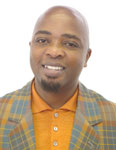Power without responsibility: the Media Appeals Tribunal
Eventually the ANC succumbed to pressure and the idea was put on the backburner. The idea of an independent Media Appeals Tribunal has reared its head again.
What do proponents of media tribunal say?
For ANC secretary Gwede Mantashe, "a media tribunal is required to deal with the so-called 'dearth of media ethics' in South Africa. A Media Appeals Tribunal will help to 'correct' the anti-ANC bias in the media. The media is driven by a dark conspiracy to discredit the National Democratic Revolution."
While SACP general secretary Blade Nzimande thinks he "would like to see the tribunal used to stop the alleged corruption in the media." He points out, correctly, that the Ashley Smith affair asks some serious questions not only about the integrity of Ebrahim Rasool, but also of Smith and other members of the media and calls for a re-evaluation of the role the media plays in South Africa.
Says ANC spokesperson Jackson Mthembu, "We strongly condemn the practice and promotion of the freedom of expression and freedom of the arts which knows no bounds and only sees itself as the most supreme freedom that supersedes and tramples other people's constitutional rights to dignity and privacy, and undermines our values. We therefore remain resolute and unmoved in our call for an independent arbiter in the form of a Media Appeals Tribunal to monitor, regulate and chastise the kind of gutter, soulless and disrespectful journalism."
Do we really need the Media Appeals Tribunal?
South Africa's prevailing media environment cannot be understood outside of the specific set of conditions under which the media operated during apartheid. Media was characterised by a centralisation of ownership and control among a few large white-owned companies.
Censorship and repression were used to silence dissenting voices, and the majority of South Africa's people were denied an opportunity to access or influence in any significant way the predominant forms of communication and information. Media was mainly used as a propaganda machinery to misinform communities, lie, overlook the aspirations of the majority, undermine the struggle for democracy and to protect and promote the then government's dictatorial tendencies.
Media should be allowed to report freely
The statement issued by the World Association of Newspapers during the World Press Freedom Day (3 May 2005) says, "Media should be allowed to report freely and responsibly on issues that erode human rights. Failure to guarantee media freedom creates fertile ground for autocracy, with those in power refusing to be accountable and responsible."
An independent media can play a central role in exposing corruption, fighting crime, enhancing good governance, raising awareness on environmental conversation, and in promoting democracy, human rights and human development. The role of media in a democracy is not only limited to reporting and analysing specific events, but journalists are also opinion builders in their own right. In this way the media can contribute constructively to the propagation of all that is good and true, and entrench the processes of democracy, debates, development, and enlightenment.
The constitutionally-entrenched freedom of the media challenges the media to; be responsible; a protagonist of truth; protector of democracy and human rights; and promoter of peace, enlightenment, human dignity, prosperity, diversity and development. However, media freedom comes with rights and responsibilities. Media freedom, like other constitutional rights, is only meaningful if it is contextualised within the broader national interests.
"We are just as bad as politicians we slate"
It is ironic that the media, that places so much emphasis on the ethical lapses of those they cover, are themselves so prone to sadism, insensitivity and feelings of grandiosity.
"At the extreme point, journalists have visions of grandiosity, created by their power over reputations and their ability to perform for the public. And, of course, many suffer all these syndromes at once, sadistically playing with the reputation of politicians to enhance their own feeling of power, because they are insensitive to how much pain they are causing," says Sir Lionel Morrison, former journalists and activist.
"South African media is on a mission to topple structures and people without investing enough time on investigating and ascertaining facts. We demand that everyone accounts, but we do not do the same. We are just as bad as politicians we slate."
Media, like other institutions, controlled by humans
The current system of self-regulation through an independent media ombudsman has proved to be inadequate, insufficient and inefficient in terms of protecting the rights of individual citizens and enhancing the careers of journalists. The rate of transformation within the journalism sector has proceeded at a snail pace, and this is reflected by the exodus of gifted journalists to government and business sectors; lack of diversity in the ownership, control and composition of the media; and lack of interest in covering poor communities and rural areas.
Media, like other institutions of society, is controlled and managed by humans who can be tempted in misusing and abusing media freedom to pursue their narrow interests. Media therefore needs a strong monitoring body, which will be broadly representative of all members from media, government, church, labour, traditional institutions, women, business and other civil society organisations. Maybe it is the reason behind the ANC Conference suggesting the creation of the Media Appeals Tribunal.
Co-existing human rights
Herbert Marshall McLuhan, a visionary educator of mass media, said, "All media work us over completely. They are so persuasive in their personal, political, economic, aesthetic, psychological, moral, ethical, and social consequences that they leave no part of us untouched, unaffected, unaltered."
We therefore need to utilise that power and influence to create an atmosphere where media freedoms of speech co-exist with other human rights and national priorities, and ensure compliance to the principles of responsible journalism. Whether that structure is the Media Appeals Tribunal or not, let the debate start.
























